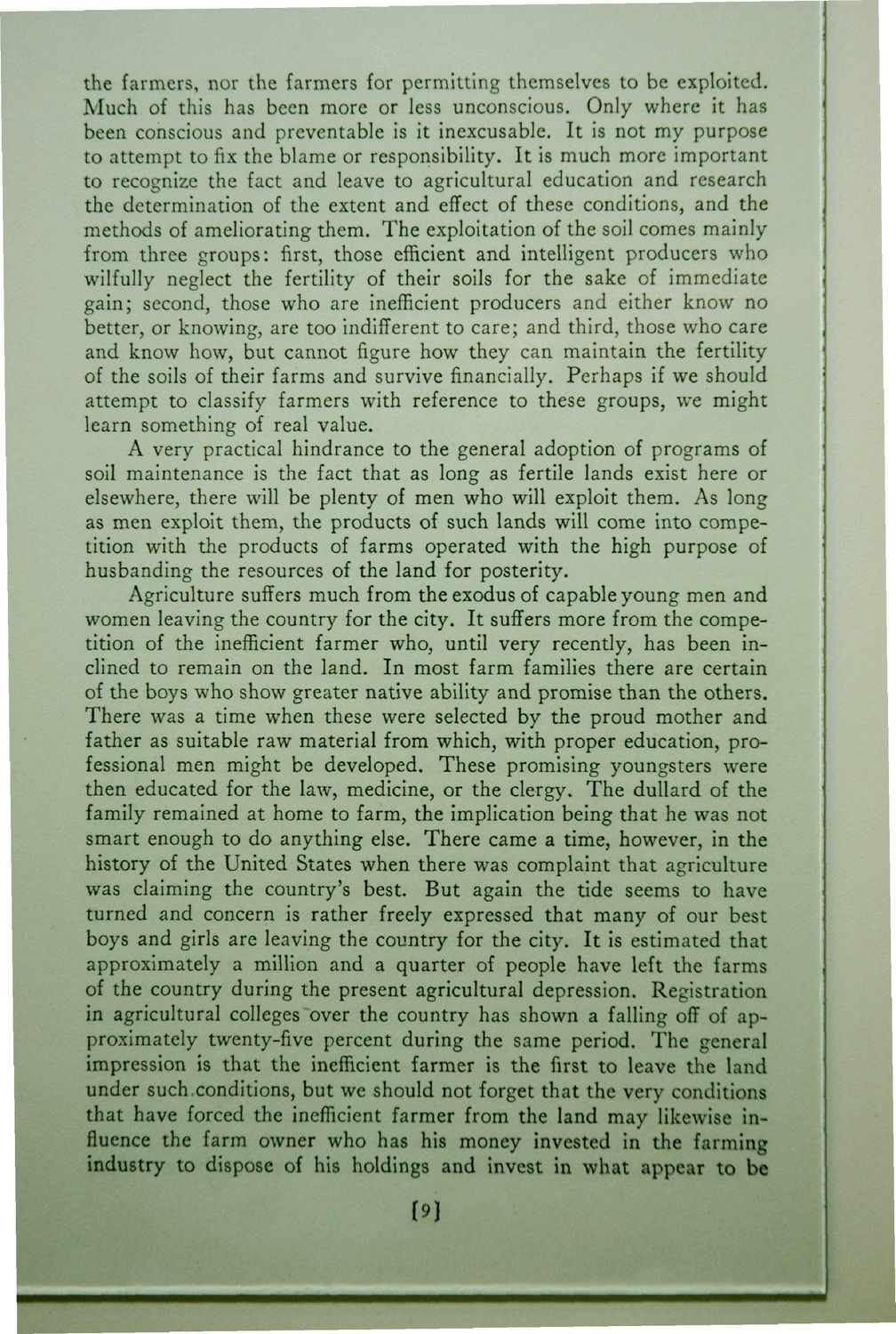| |
| |
Caption: Dedication - New Ag Building Speech
This is a reduced-resolution page image for fast online browsing.

EXTRACTED TEXT FROM PAGE:
the farmers, nor the farmers for permitting themselves to be exploited. Much of this has been more or less unconscious. Only where it has been conscious and preventable is it inexcusable. It is not my purpose to attempt to fix the blame or responsibility. It is much more important to recognize the fact and leave to agricultural education and research the determination of the extent and effect of these conditions, and the methods of ameliorating them. The exploitation of the soil comes mainly from three groups: first, those efficient and intelligent producers who wilfully neglect the fertility of their soils for the sake of immediate gain; second, those who are inefficient producers and either know no better, or knowing, are too indifferent to care; and third, those who care and know how, but cannot figure how they can maintain the fertility of the soils of their farms and survive financially. Perhaps if we should attempt to classify farmers with reference to these groups, we might learn something of real value. A very practical hindrance to the general adoption of programs of soil maintenance is the fact that as long as fertile lands exist here or elsewhere, there will be plenty of men who will exploit them. As long as men exploit them, the products of such lands will come into competition with the products of farms operated with the high purpose of husbanding the resources of the land for posterity. Agriculture suffers much from the exodus of capable young men and women leaving the country for the city. It suffers more from the competition of the inefficient farmer who, until very recently, has been inclined to remain on the land. In most farm families there are certain of the boys who show greater native ability and promise than the others. There was a time when these were selected by the proud mother and father as suitable raw material from which, with proper education, professional men might be developed. These promising youngsters were then educated for the law, medicine, or the clergy. The dullard of the family remained at home to farm, the implication being that he was not smart enough to do anything else. There came a time, however, in the history of the United States when there was complaint that agriculture was claiming the country's best. But again the tide seems to have turned and concern is rather freely expressed that many of our best boys and girls are leaving the country for the city. It is estimated that approximately a million and a quarter of people have left the farms of the country during the present agricultural depression. Registration in agricultural colleges "over the country has shown a falling off of approximately twenty-five percent during the same period. The general impression is that the inefficient farmer is the first to leave the land under such.conditions, but we should not forget that the very conditions that have forced the inefficient farmer from the land may likewise influence the farm owner who has his money invested in the farming industry to dispose of his holdings and invest in what appear to be [9]
| |